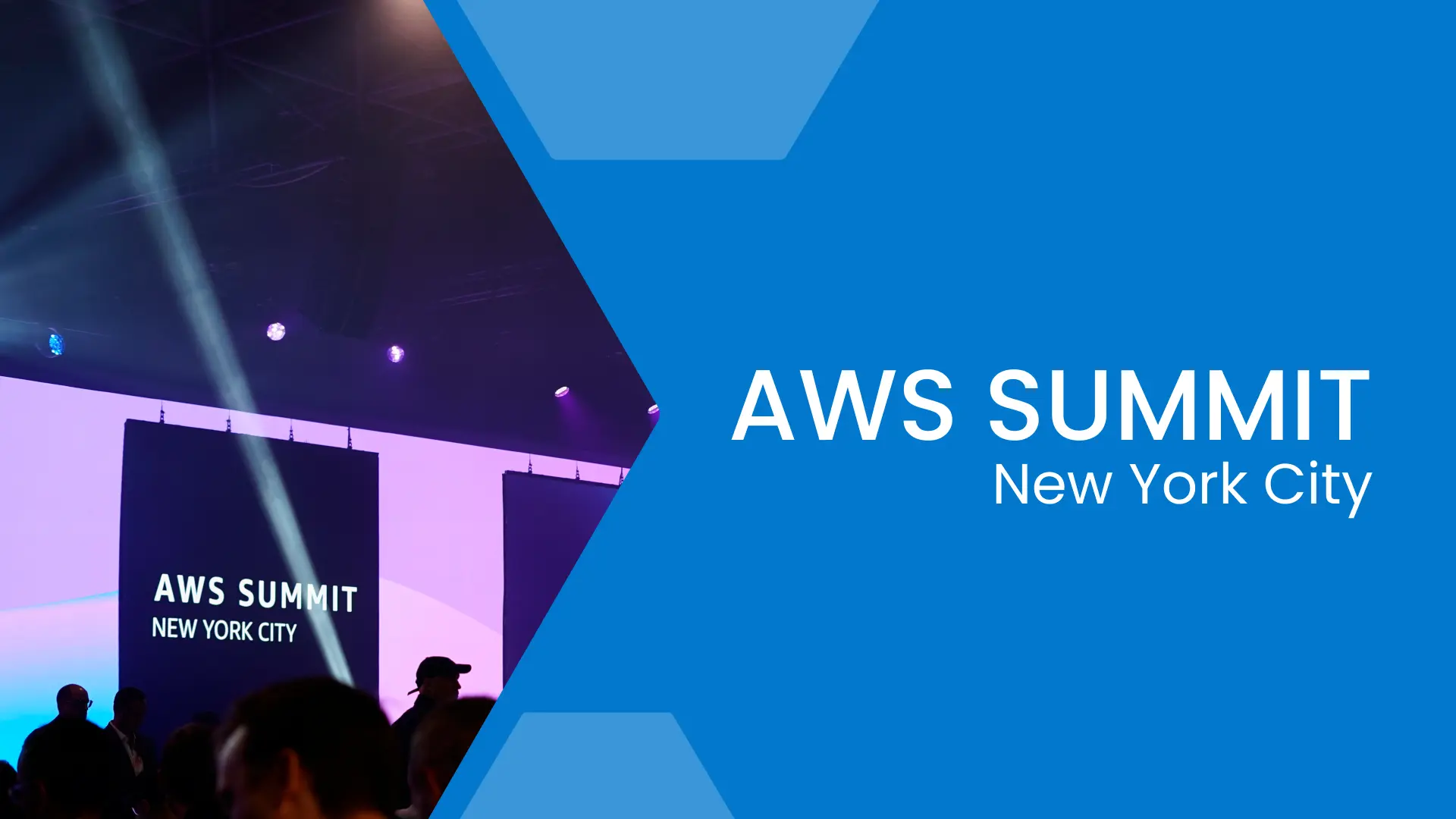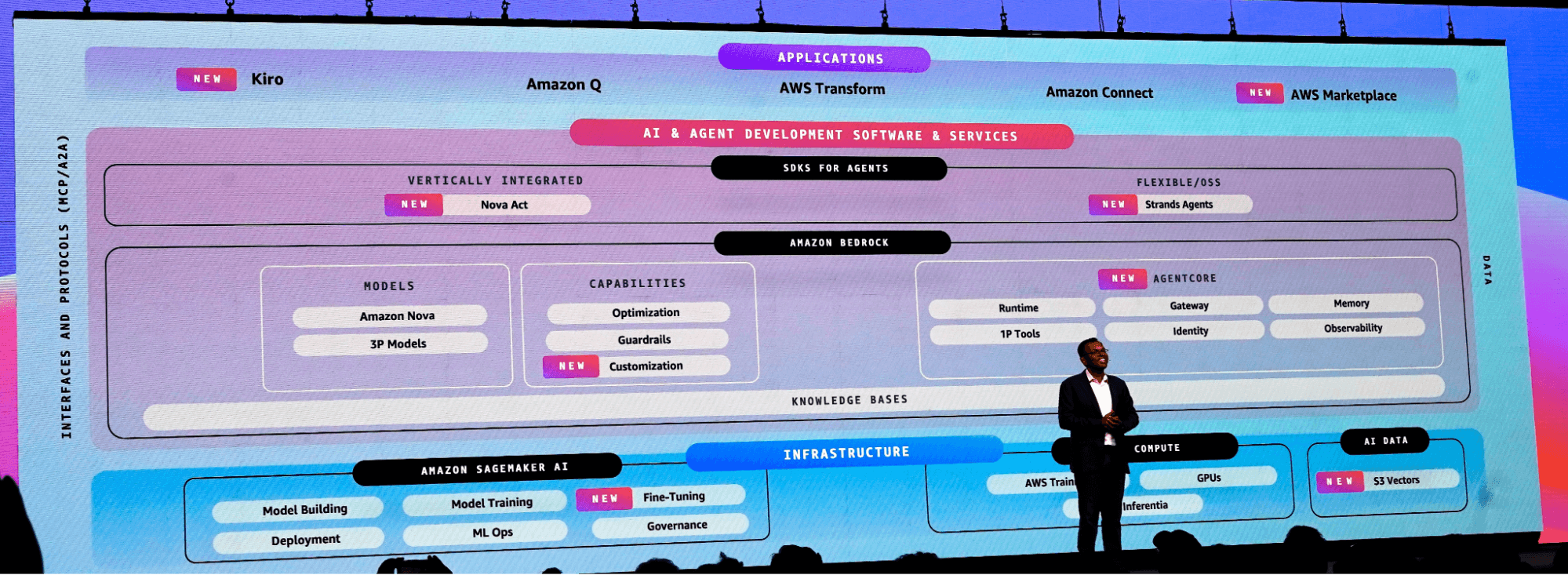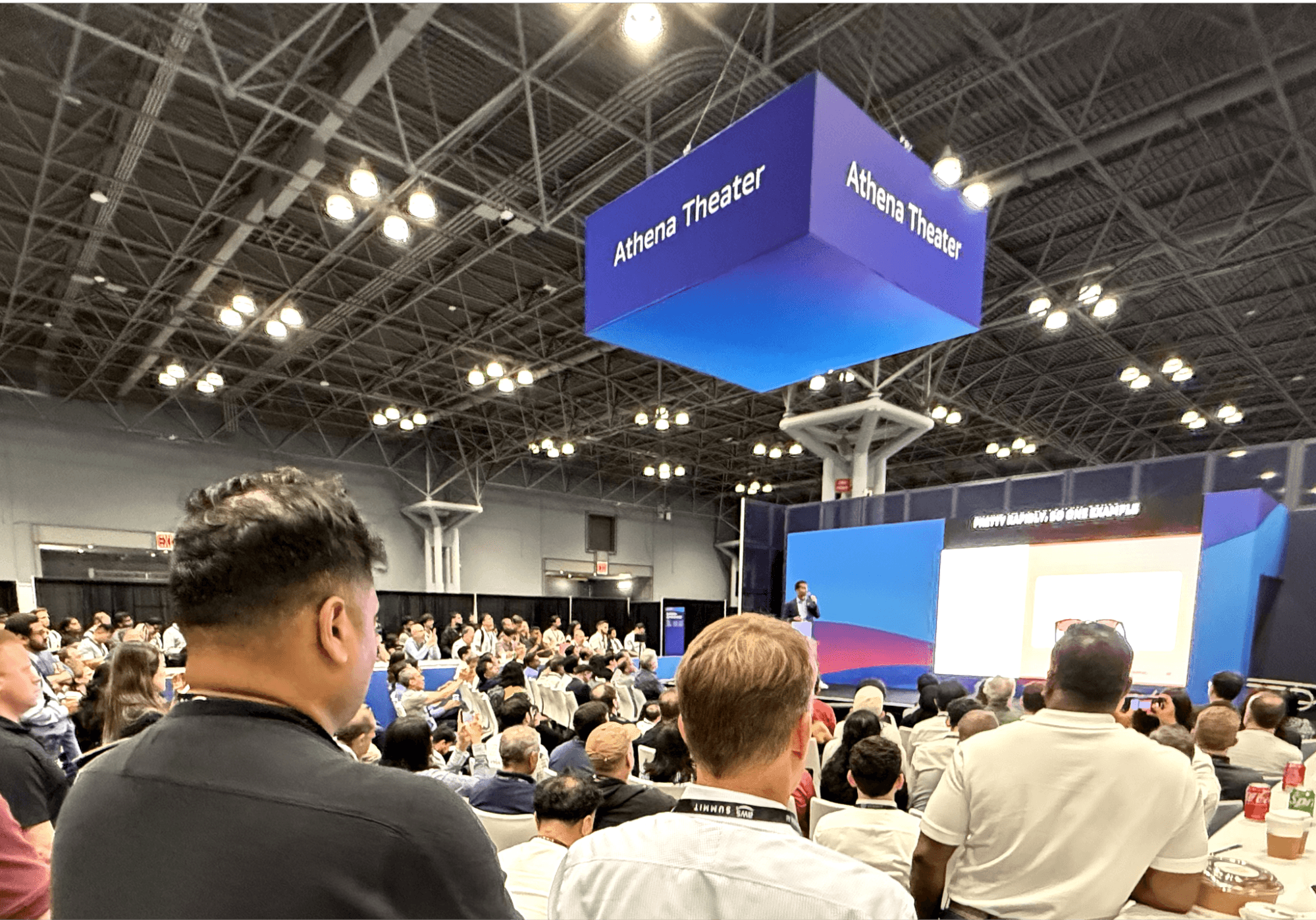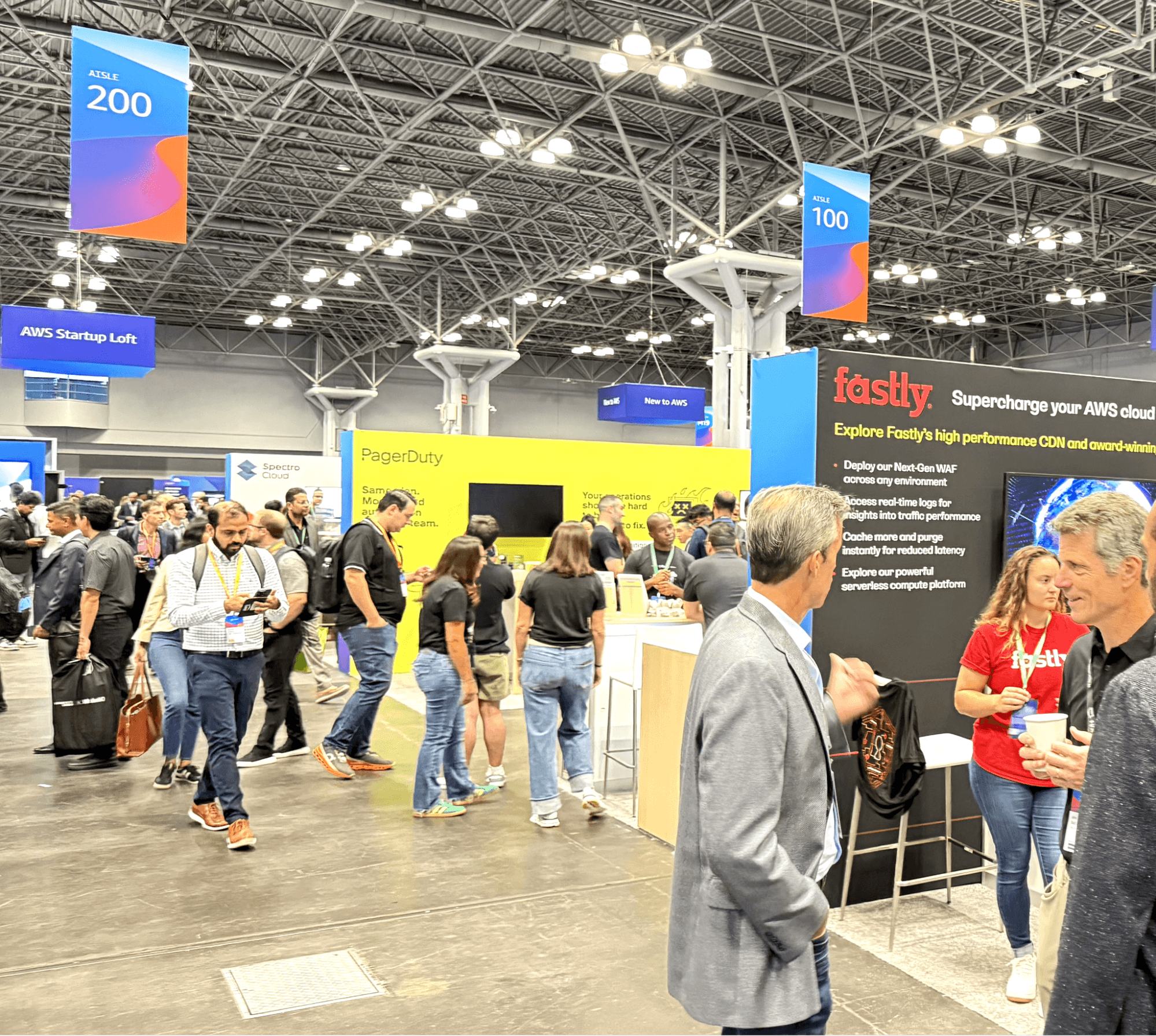AWS Summit NYC 2025: Laser-Focused on AI
If you’re unfamiliar with AWS Summits, these are conferences that occur on a yearly basis in different cities. The events are mostly used to announce new products and technologies. This year, the theme was AI, as evidenced by the keynote, a large majority of the talks, and a walk around the vendor floor.

By: Ken Rimple

AI’s Unrealized Potential: Honeycomb and DORA on Smarter, More Reliable Development with LLMs
Watch Now
If you’re unfamiliar with AWS Summits, these are conferences that occur on a yearly basis in different cities. The events are mostly used to announce new products and technologies. This year, the theme was AI, as evidenced by the keynote, a large majority of the talks, and a walk around the vendor floor.
The keynote talk was hosted by Swami Sivasubramanian, VP of Agentic AI at AWS. Unless you lived under a rock for 2024 and 2025, AI agents have been The Thing every company is focusing on, and AWS, with its Bedrock platform, is positioned to make Agents and MCP Servers the centerpiece of this movement.
Want to learn more about Honeycomb MCP? Register for our webinar.
Keynote focus: AgentCore
AgentCore is AWS’ set of foundational APIs and services, enabling Agentic AI in a secure, scalable manner using AWS services, interop with various security, API and MCP vendors, and scaling workloads on serverless architectures.

AWS used their New York Summit to announce Amazon Bedrock AgentCore, a set of APIs for building and hosting agents. It includes a serverless AgentCore runtime that can execute tasks for as much as eight hours for any given task. All data is completely isolated, and AgentCore memory can hold short-term and long-term memory for agent clients.
AgentCore Identity provides authentication via OAuth and Amazon's identity services.
For executing code, AgentCore provides a CodeInterpreter, which allows agents to write and run code in TypeScript/Javascript and Python, and also includes Browser Tool, which accesses web sites and applications via a secure, isolated virtualized browser with private memory provided per user session.
For accessing existing APIs, Amazon provides AgentCore Gateway.
Amazon also announced support for vector storage and querying in S3. Of course, as with other S3-based services, you only pay for what you store and query, and you get a massively scaling storage platform with no caps. This can be used by AgentCore for its Agent memory.
Amazon also showed off its Kira IDE, geared toward people who like having agents do more of the lift, and toward people just getting into coding from other professions. It also supports Amazon Q in IDEs or via a CLI for engineers who would prefer a traditional IDE with agent support.
AWS Transform for code migrations
Another talk at the keynote was from Matt Dinich from Thomson Reuters. The company has been moving off of an older, Windows-based .NET platform, and to do so, they leveraged AWS Transform. Their teams run seven platform migrations at a time. Matt stressed that this wasn't done to eliminate developers, but to empower them and to fix technical debt.
Honeycomb MCP now available in the AWS Marketplace
Announced at AWS Summit, Honeycomb MCP is now part of the Honeycomb Enterprise AWS Marketplace in the AI agents and tools category. Just connect to our MCP from your favorite agent, and a browser will open, authenticating you via OAuth2.
While using the Honeycomb Query interface is absolutely the best way to get quick answers to questions while investigating your problems, the MCP server offers engineers a new way to analyze data, such as correlating code with behavior in deeper analysis, or making sure to further verify fixes by viewing traces after code is deployed.
The MCP server provides superpowers to your agent tool. I've been using it for the past few weeks and it has made it easier to spot problems in my code, since I'm instrumenting during development with the help of my agent, Claude Code. I've asked questions like:
- Why is trace <id> failing? I can't figure it out in my codebase. Correlate the trace failure to the source code in this application under the src directory.
- What services have the slowest response times in this codebase in the prod-www site, and can you review the code to spot areas we could improve it, such as simplifying multiple calls?
- Create a plan to add /api/verify-credit to the checkout process in my current project, passing customer data via a POST based on the service definition at <my swagger api location>. Write tests for the code, and make sure it is properly observable by querying Honeycomb when the test is in place.
Coupling this with good documentation on the code architecture, tools, and architectural information in readable documentation, your agent will help you iterate with more visibility into what your code is actually doing.
Claude Code 4 talk by Anthropic
Another show highlight was a packed talk at the Athena Partner Theater by Anthropic on Claude Code and related technologies. I've used Claude Code with the Honeycomb MCP for the past few weeks, and it's a great combination. It certainly seems to be the agent of the moment.

Claude Code has evolved as an agent, from assisting (in 2024), to collaborating (in 2025). I was impressed with how far it has come in just a year. The Claude vision aims for the agent to pioneer breakthrough solutions to challenging problems in 2027.
The rising tide of agents and MCP servers
The vendor floor was packed with startups offering their agents and MCP servers, as well as existing platforms offering the latest services with various levels of agentic behavior.

As evidenced by the tools and services on display at the show, it is clear that agentic AI is becoming a dominant force. Tons of companies were showing off their agent-based services, and agent-enabled systems. It's basically tablestakes now.
Wrap-up
With Thomson Reuters running seven platform migrations simultaneously with AWS Transform, Honeycomb's MCP server enabling real-time observability correlation, and Claude Code's evolution from assistant to true development collaborator, it seems we’re all barreling towards one conclusion: agentic AI isn't coming. It's already here. We're moving beyond AI as a coding assistant to AI as a development partner that can understand context, maintain project memory, and execute complex multi-step tasks autonomously.
AWS Summit NYC 2025 made one thing crystal clear: there is a shift in how software is built and maintained. The launch of Amazon Bedrock AgentCore shows AWS' bet on a future where AI agents become essential infrastructure, complete with long-running task executions, secure isolated environments, and integration with existing development workflows.